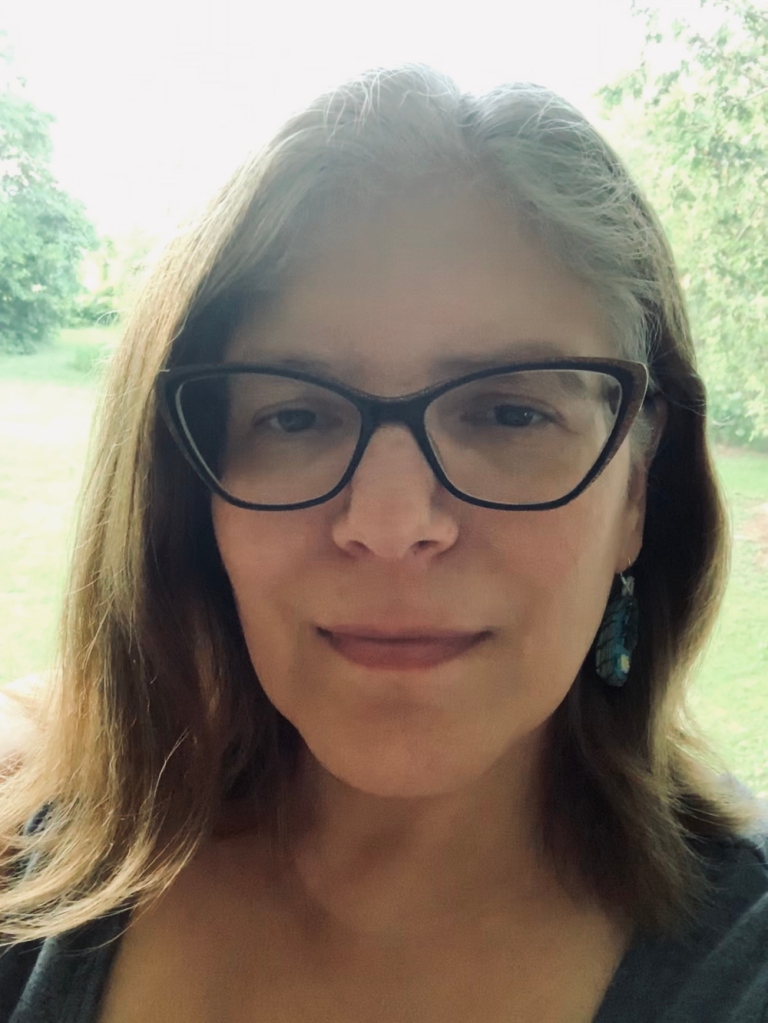Interview conducted by Alicja Minda.
A career as an editor is often a solo adventure, especially if you’re a freelancer. So we thought one way to better connect with fellow editors was to ask them the Five Ws: who, what, where, when, and why. Read on for some thought-provoking, enlightening tidbits from those of us who choose to work with words to earn our keep.
Please tell us a little about yourself, the kind of work you do (and where you live), and how long you’ve been an editor.
My name is Kateri Akiwenzie-Damm. I am from the Chippewas of Nawash Unceded First Nation, Saugeen Ojibway Nation in Ontario and divide my time between my home territory, the Ottawa area, and Toronto. I am a writer, publisher, editor, and assistant professor of Creative Writing, Indigenous Literatures, and Oral Traditions at the University of Toronto Scarborough. I’m not sure how long I’ve been an editor—but since around 1998, I think.
I am the publisher and managing editor at Kegedonce Press, which is based at Neyaashiinigmiing, Ontario, and run by two First Nations women: Renee K. Abram, who handles the business side of publishing, and me. I enjoy working closely with writers, artists, and designers. In reality, I’m also the acquisitions editor and art director, and I sometimes work directly with writers as their editor.
Who: If you could edit one famous author, living or dead, who would it be?
Haunani-Kay Trask. She was a brilliant writer, a professor at the University of Hawai’i at Manoa, and a leader in the Kānaka Maoli (Indigenous Hawaiian) sovereignty movement. Kumu Trask was incredibly knowledgeable, generous, fierce, and brilliant. She would have kept me in top form! Spending time with her discussing her poetry would have been an unforgettable gift.
What: Do you have a favourite punctuation mark and/or a favourite word?
Some of my favourite words right now are debwewin, nishin, regeneration, and restorative. Debwewin is a word in Anishinaabemowin meaning “truth.” Nishin is also a word in Anishinaabemowin. It means “good” or “it’s good!”
My least favourite is resilience. Why? Because we need to stop praising Indigenous people and others for being resilient in the face of colonialism, racism, and various forms of bigotry and hate—and instead, focus on creating change that prevents those situations that require us to be resilient. It’s unfair to continually place people in those situations, which distract them from achieving their own goals and which diminish their quality of life. It completely overlooks the reality that for all of us who are “resilient” in any given situation, there are others who cannot be, whose lives are completely upended, whose dreams are shattered, and whose health and well-being are compromised.
Praising resilience has become a way to absolve society of responsibility to ensure fairness, equity, and justice by entrenching a status quo that privileges some at the expense of others. And let’s face it, there’s no reward or benefit for being resilient beyond mere survival. But resilience comes at great cost.
Where: If you could work anywhere in the world as an editor, where would that be?
Working from my home territory, as I do most of the time. At this point, I am not interested in editing for any other publisher anywhere.
When: Was there ever a time in your life when you seriously questioned your career choice?
Editing is not my only, or main, career. I have questioned whether I should continue to edit because I’m sure that there are editors who are more highly trained or more technical in their approach, and because it takes me away from my own writing. Ultimately, there’s still a need for what I bring to editing, and so I continue to take on some editing, when necessary.
Why: Why did you choose to become an editor? Or, should we ask: Why did editing choose you?
Editing chose me because there was, and continues to be, a tremendous need for culturally informed and sensitive editing of Indigenous writing by Indigenous editors. At the time I started, there were few, if any, Indigenous editors, and I had certain skills that allowed me to reimagine the way Indigenous writing was being treated and edited and to envision a different relationship between Indigenous writers and editors so that Indigenous writers and their work could be empowered through the editing process.
And, of course, we just had to ask the inevitable how: How would you sum up your motto?
I don’t have an editing motto. I try to meet the writer where they are, figure out a collaborative understanding of “success” for the book and the writer, and find ways to bring out the writer’s best work while centering their cultural positioning. One of the goals is to create work that speaks clearly to their audience(s) and that builds a foundation for future successes.
Alicja Minda is a Toronto-based editor with a background in media. She is the former editor-in-chief of BoldFace.
This article was copy edited by Natalia Iwanek.


Thank you for sharing your editing journey.
Completely agree this statement:”we need to stop praising Indigenous people and others for being resilient in the face of colonialism, racism, and various forms of bigotry and hate—and instead, focus on creating change that prevents those situations that require us to be resilient.”
LikeLike